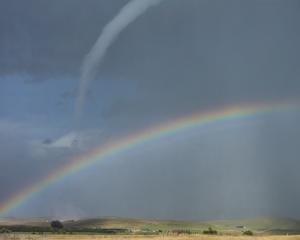The rotting remains of an orca washed ashore on Bay of Plenty beach is causing a global media frenzy after the giant carcass was dubbed a "sea monster''.
The carcass was found by a group of quad bikers and its jaw and teeth and parts of its body were still intact.
A Bay of Plenty resident with the YouTube name Elizabeth Ann filmed the creature on Pukehina Beach, south of Tauranga, late last month after stormy weather.
The video, which showed a partly decomposed carcass about 9m long with sizeable fins and a large jaw with only some jagged teeth still attached, has been viewed and shared all over the world.
The Daily Mail called the decaying mass a "mysterious 30 foot long rotting sea monster with huge teeth''.
The New York Daily News described it as "monster from the deep'' and Express.co.uk asked: "Is this a sea monster from the darkest depths of the ocean?"
Other outlets publishing the tale were The Sun, Science World Report, TopNews Arab Emirates, International Business Times, and Huffington Post.
The caption posted with the video asked viewer to help identify the remains, describing it as having "a huge head and teeth with
rudimentary flippers''.
"It seems about 9m in length but the lower part of the body is probably mainly entrails from an attack.''
Experts quoted in the stories guessed the carcass to be anything from a saltwater crocodile, giant moray eel, or a dinosaur, before a number of marine scientists said the tell-tale fin was that of an orca whale.
Marine mammal expert Anton van Helden was sent the footage by someone at Auckland University. He said it appeared to be an orca.
"The video pans over the flipper and it is a flat paddle shape which is diagnostic of the killer whale.''
Mr van Helden said the dead whale might have been out at sea for some time before being washed up on the beach.
"It is very typical for whales of different shapes and sizes to wash up on beaches around New Zealand,'' he said.
He said anyone who came across whale carcasses needed to report it to the Department of Conservation.
"They are the Crown authority in these cases and they will determine if the carcass needs top go to scientists or tangata whenua.''
He understood the remains had since been washed back out to sea.
Orca are common in most oceans and frequent New Zealand coastlines.
- by Morgan Tait of the New Zealand Herald












